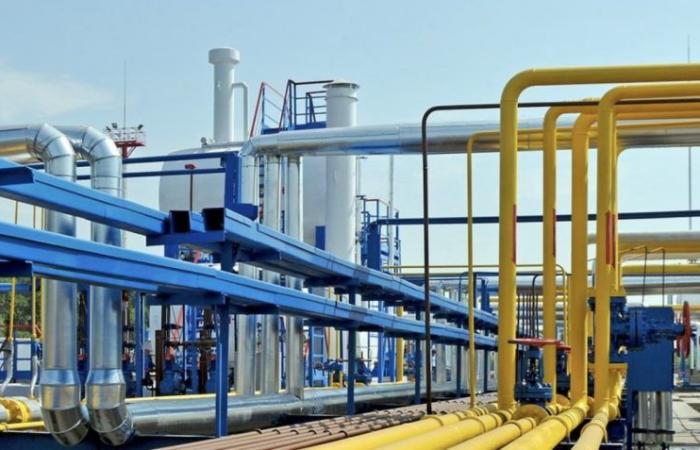Increasing supply is the main challenge in the national market due to high reinjection and lack of infrastructure; biomethane should become competitive from 2026
The price of natural gas in Brazil is expected to fall 13.8% in 2024 compared to last year. The average value this year should be US$ 10.92 per million BTUs, a measure that is equivalent to 26.8 m³ (cubic meters). The projection is from Cbie (Brazilian Infrastructure Center) and appears in the new edition of the report “Perspectives for the Energy Sector”, released this Wednesday (April 3, 2024). Here is the presentation with the highlights of the study (PDF – 2 MB).
The fall should be driven by international prices. In Europe, gas should remain at US$9 per million BTUs, a value 38% lower than the 2023 average. According to Bruno Pascon, partner at Cbie Advisory, this is due to greater global supply, replenishment of stocks and the winter milder European market, which makes demand pressure less.
In Brazil, the new supply contracts signed by Petrobras, the cost of imports from Bolivia and domestic demand were considered. Cbie’s estimate, considering these factors, is that the average price of natural gas will continue on a downward trajectory and leave the double digits from 2027 and 2028 onwards.
“Here in Brazil we don’t see a lot of price pressure. What will dictate the pace of prices is the scenario, especially in Europe and Asia, in addition to the way Petrobras prices it in the country. In the domestic market, demand is stable, without large dispatches of thermal plants”said Pascon.
The biggest challenge for the domestic market, according to Pascon, is the increase in supply. The greater abundance of gas in Brazil could reduce national prices, but this comes up against 2 problems: the high reinjection of natural gas into wells and the lack of structure to flow production, especially in the pre-salt.
In 2023, Brazil produced 149.8 million m³ of gas per day. 78.8 million m³/day were reinjected, or 52% of the total. A significant part of this, according to Pascon, is justified by the strategy of using this gas to extract more oil from the fields, a cheaper and more profitable technique for oil companies. However, the lack of pipelines to bring this gas to the coast also weighs heavily.
“Any country that has a large percentage of gas associated with oil, which is 80% here, ends up reinjecting more gas. It’s cheaper than adding a chemical to help extract the oil. But historically in these countries the reinjection level has never exceeded 30% or 35%. This in Brazil is due to infrastructure bottlenecks”explains.
If Brazil had an efficient network to transport pre-salt gas, for example, it could increase national supply by 15 million to 20 million m³/day. There are projects for this, such as the gas pipeline called Route 3, but the execution is delayed and delivery should, in the best case scenario, be until the end of 2024.
“Gross natural gas production in Brazil will double by 2033. If this happens and the country does not invest in flow capacity, this reinjection volume will increase”warns the Cbie partner.
BIOMETHANE
The report also indicates that biomethane will be competitively priced with natural gas from 2026. Currently, renewable gas costs US$14 to US$15 million BTUs. In the coming years, it should be in the range of US$ 8 to US$ 9. Given this scenario, Cbie estimates that the fuel will be one of the flagships of the energy transition in Brazil.
Currently, most biomethane production is concentrated in cities, from landfills. This is a more expensive process than generating it from agricultural waste, such as sugarcane bagasse, for example. “As production leaves the city and goes to the countryside, the price tends to fall, because it is a cheaper biodigester technology”Pascon said.
Still, it will be necessary to resolve the drainage infrastructure deficit. The difference is that in the case of biomethane, the cost is lower since the production sites will be closer to consumers and not on the high seas.
Biomethane is obtained from the purification of biogas (produced by the decomposition process of organic matter) and has a composition similar to natural gas. There are currently 20 biomethane plants in the country, of which only 6 sell the gas. But the sector projects 600% growth of production by 2029.






